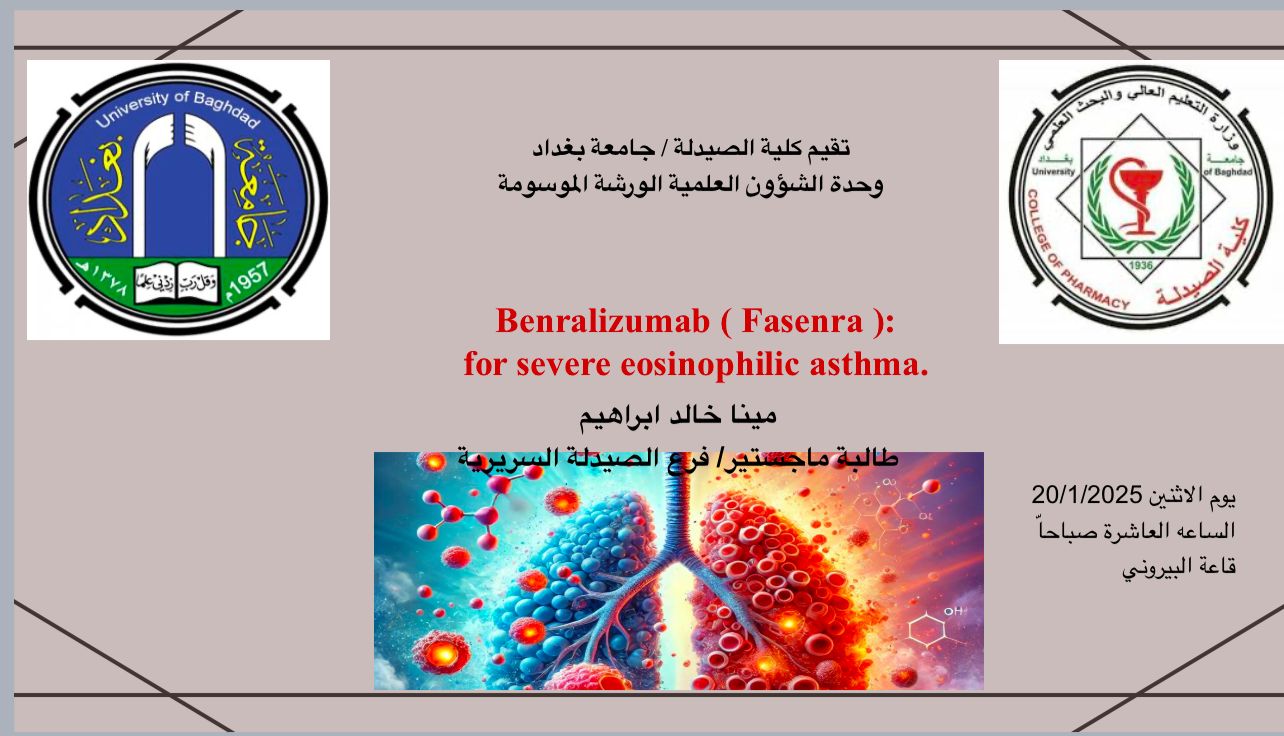Under the supervision of the Dean of the College of Pharmacy, Professor Dr. Sarmed H. Kathem Alkhateeb, the Scientific Affairs Unit at the University of Baghdad/College of Pharmacy, held an in-person scientific seminar entitled “Benralizumab (Fasenra): for severe eosinophilic asthma,” delivered by Pharmacist Mena Khalid Ibrahim, the MSc student at the Clinical Pharmacy Department.The seminar aimed to review important information about severe asthma and the impact that eosinophils can have on the burden of disease. It also aimed to review clinical data on the use of Benralizumab (Fasenra) in the treatment of severe eosinophilic asthma. The seminar included several topics, including: how eosinophilic activity contributes to disease pathology throughout the body, identifying severe eosinophilic asthma (SEA) in practice, the role of biologics in severe asthma, and an introduction to benralizumab (its class, mechanism of action, indications, and exclusions for use, as well as information on efficacy, benefits, and challenges). The seminar concluded that benralizumab represents a significant advancement in the treatment of severe eosinophilic asthma, providing patients with a more targeted approach to managing their condition. The drug depletes blood eosinophils to near zero within 24 hours of the initial dose. In total, 74% of patients had no exacerbations after 2 years of treatment with benralizumab. Additionally, 52% of eligible patients reduced oral corticosteroid (OCS) use to zero, compared with 19% in the placebo group. Benralizumab has a good safety profile. It has been studied in severe asthma since 2008, and approximately 130,000 patients have received Benralizumab worldwide. Pooled data from three Phase 3 studies (N=1030) showed no new safety signals due to long-term depletion of eosinophils after 2 years, and no association between the treatment and increased risks of infections or malignancies.





